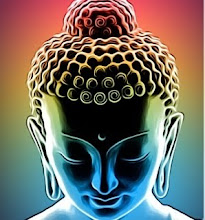
Above: A mother and daughter in an AIDS hospice in Malawi;
the mother transmitted the HIV virus to the daughter in utero
After seeing an article on AIDS and circumcision in the New York Times today, I want to comment on circumcision, which is often criticized, especially in Buddhist circles, as being an unnecessary and painful elective procedure with no medical value.
There is very convincing medical evidence that circumcision reduces the rate of transmission for sexually transmitted diseases, especially HIV/AIDS.
The Buddha taught us to do no harm, and to do what is helpful and beneficial to other beings. The Buddha further taught us that sometimes doing some harm may be necessary in order to prevent a greater harm.
To understand what kind of "greater harm" is at stake, consider the following:
There are more than 38,000,000 cases of HIV/AIDS worldwide, of which more than 24,000,000 (more than 60%) are in Subsaharan Africa. There were approximately 2,500,000 new HIV infections in Africa in 2005 alone, and millions more every year. Almost 30% of the global number of people living with HIV live in southern Africa (Angola, Namibia, Zambia, Zimbabwe, Botswana, Malawi, Mozambique, South Africa, the two small states of Lesotho and Swaziland and the island of Madagascar) where only 2% of the world's population reside.
HIV/AIDS is killing millions of people worldwide, and a recent, double-blind (i.e. scientifically valid) study among African men showed that the rate of HIV transmission was reduced by 65% by circumcision.
In the Upāyakauśalya-sūtra there is a story about the Buddha killing a being in order to save others. While on board a ship, the Buddha discovered that there was a robber who intended to kill all five hundred of his fellow passengers. The Buddha decided to kill the robber, not only for the sake of his fellow passengers but also to save the robber himself from the karmic consequences of his horrendous act. In doing so, the negative karma from killing the robber should have accrued to Shakyamuni but it did not.
Therefore there is a principle in Buddhism that in rare circumstances it may be appropriate to commit an act that harms one being in order to prevent the suffering of others.
I believe that circumcision is justifiable on the basis of this principle. It is true that circumcision is painful and a modification of the body's natural anatomy. But it is also true that, in the case of infant circumcision, the patient will almost certainly have no memory of the procedure (since the brain's long-term memory functions are not fully developed at that point), so the probability of psychological damage to the patient is very, very low. Taking into account the very real possibility that, for males in areas where HIV/AIDS is reaching epidemic proportions, the procedure may very well prevent transmission of HIV/AIDS to their partners, it is far better to cause temporary pain to infants by circumcising them than to condemn millions of others to death and resultant suffering.
Circumcision is therefore in my opinion defensible as a matter of sīla (ethics).
May all beings know peace and freedom from suffering.

2 comments:
I agree about circumcision.
it is saddenning that lust has overtaken mankind and humankind is the only species that seeks sensation at the cost of happiness and peace........if people cannot behave responsibly and with discipline what we need is not just circumcision but wholesale castration.................we cannopt allow such large scale misrey of women and young children.........
Post a Comment